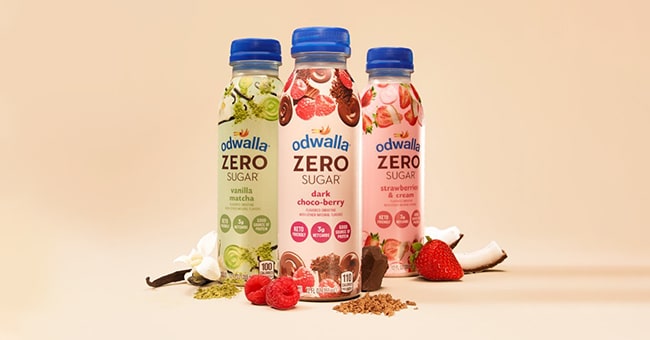Citing rapid changes in the marketplace, The Coca-Cola Company announced this morning it is discontinuing its cold-pressed juice and smoothie brand Odwalla and its accompanying chilled DSD network at the end of this month.
“This decision was not made lightly and comes at a time when it is more important than ever to evaluate where we can improve efficiencies in our business and operations,” said John Hackett, President, Minute Maid Business Unit, in an emailed statement. “We would like to thank our valued consumers along with our retail and foodservice customers for their enduring partnership.”
The DSD division’s fleet of 230 trucks will be pulled out of service, with Coke’s other brands from the network, which includes Simply and Fairlife, moving to other distributors or to warehouse direct shipping. Approximately 300 employees have been impacted, according to the company.
A company spokesperson said the decision was not related to the COVID-19 pandemic. “As consumers’ needs for functional beverages and fortification have evolved, traditional Natural Health Beverage segments like smoothies have declined,” said the spokesperson in an email.
The California-based beverage company was acquired by Coca-Cola in 2001 in an $181 million deal. Alongside names like Naked and Bolthouse Farms, Odwalla was an early pioneer in bringing super premium juice into conventional grocery cooler sets. The company expanded its product range in recent years, introducing a kombucha-based smoothie line and zero-sugar added varieties.
According to IRI, Odwalla saw sales decline in several segments over the past year, including refrigerated orange juice (down just under 10% through April), refrigerated smoothies (down 15%) and milkshakes (down 7.8%).
Coca-Cola will retain a presence in smoothies (Simply Smoothies), protein shakes (Core Power) and orange juice (Minute Maid/Simply).
Jim Watson, senior analyst for beverages at Rabobank, noted that despite hopes that super premium products could help drive growth, the juice category has stagnated as consumers perceive it as a high sugar, high calorie product that no longer carries the health halo it once enjoyed. In the wake of the pandemic, the impetus for large corporations to cut loose brands and products whose performance doesn’t justify the resources committed may also be stronger, he said.
But Watson added that Coke’s decision to discontinue its refrigerated DSD network suggests that large corporations may be losing their ambition to create large-scale cold chain distribution systems. Last October, Peet’s Coffee announced it was discontinuing its refrigerated cold brew line — along with Coldcraft, its in-house cold chain distributor for select markets — to focus on its shelf-stable RTD coffees, which are serviced through its partnership with Keurig Dr Pepper (KDP).
In the future, he noted, companies may take a closer look at return on investment for refrigerated products and require that they “earn that distribution.”
“I do think one of the most significant parts is the cold distribution angle,” he said. “It’s not just that the brand is not doing well — it has a method of going to market that has been difficult and expensive.”

